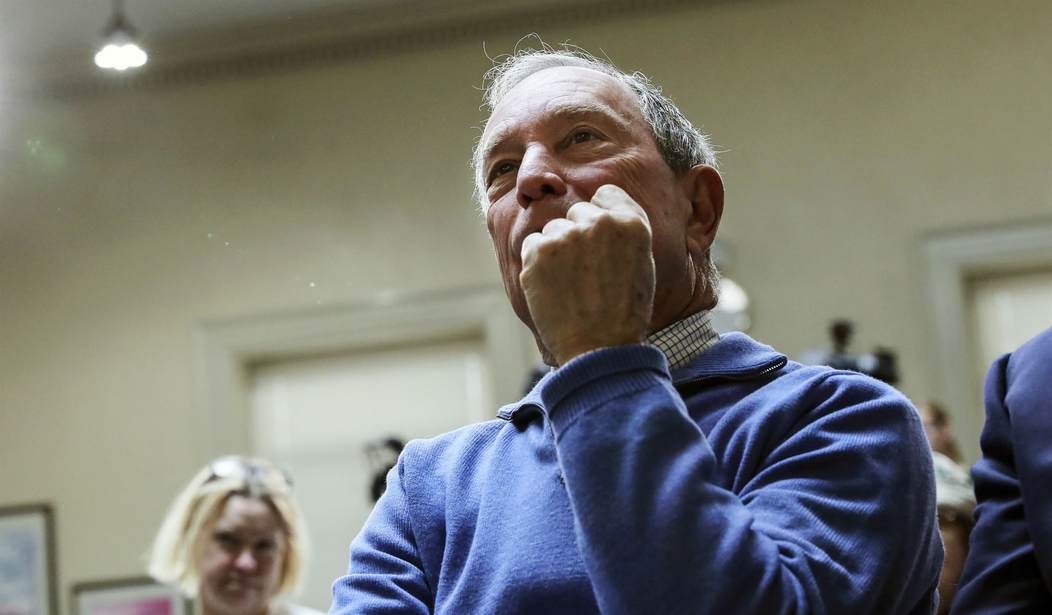Gun control groups massively outspent Second Amendment organizations in the Virginia elections that brought Democrats control of the state legislature, dropping at least $2.5 million into more than a dozen races in suburban swing districts. Yet we hear all the time about the NRA’s spending, and how politicians who support the Second Amendment are really just “in the pocket of the gun lobby.” Why shouldn’t the same be said of politicians who rake in even more cash from anti-gun groups?
Bloomberg helped found Everytown for Gun Safety in 2014 to “end gun violence and counter the Washington gun lobby.” The group put its focus beyond Congress, to bring attention to state elections and corporate boards, “fields of play formerly occupied almost solely by the gun lobby.” Bloomberg has pledged to spend at least $50 million to support the cause. The group now has 350,000 financial backers, though Bloomberg remains a major contributor.
This isn’t the first election where gun control groups outspent their ideological opponents. It happened in the 2018 midterms, and it will almost certainly happen again next year in the 2020 election cycle. Not only do Second Amendment activists need to think about ways to counter the cash advantage gun control groups have, thanks to their billionaire benefactor, we need to point out the hypocrisy in politicians and anti-gun activists attacking the NRA for campaign spending, while the campaign cash spent by gun control groups dwarfs that of all of the gun rights groups combined. Any candidate bashing “dark money” in politics that benefits from Everytown’s largesse is a walking contradiction, because Everytown for Gun Safety is dark money, as the Atlanta Journal-Constitution pointed out in a 2018 story about then-candidate (and now Congresswoman) Lucy McBath.
During the debate, McBath said she “absolutely oppose(s)” dark money in politics” and repeatedly stated incorrectly that Everytown is not a dark money group. (Its political action arm is a 501(c)(4), which does not need to disclose its donors and can spend unlimited amounts on elections as long as it does not coordinate with campaigns.)
“We have to consider what these organizations are. They’re organizations that do very good work in the community around the country,” she said. “It is not dark money. I am not receiving corporate money from super PAC organizations under the table.”
No, that’s exactly what happened, and while one of her primary opponents timidly brought up the issue, he quickly dropped it and it wasn’t mentioned by her Republican challenger. I think that was a mistake.
In the future, when candidates want to have it both ways, attacking their opponents as being pawns of the gun lobby while getting even more help from gun control groups, we need to call them out and point out their hypocrisy and double standards whenever possible. It’s not just about campaign spending, either. Take Michael Bloomberg’s support for stop and frisk, for instance. According to Bloomberg, it was the city’s strict gun control laws coupled with the “stop and frisk” policies that helped lower New York’s homicide rates. He thinks the two go together like peanut butter and jelly, yet most of the anti-gun candidates he’ll be backing next year are opposed to “stop and frisk.” Shouldn’t those candidates be pressed about the connection between gun control laws and “overpolicing”?
Anti-gun candidates are going to enjoy a huge cash advantage in 2020, but if gun owners and Second Amendment supporters are smart, we can counter their media messaging with effective tactics and messaging of our own.









Join the conversation as a VIP Member